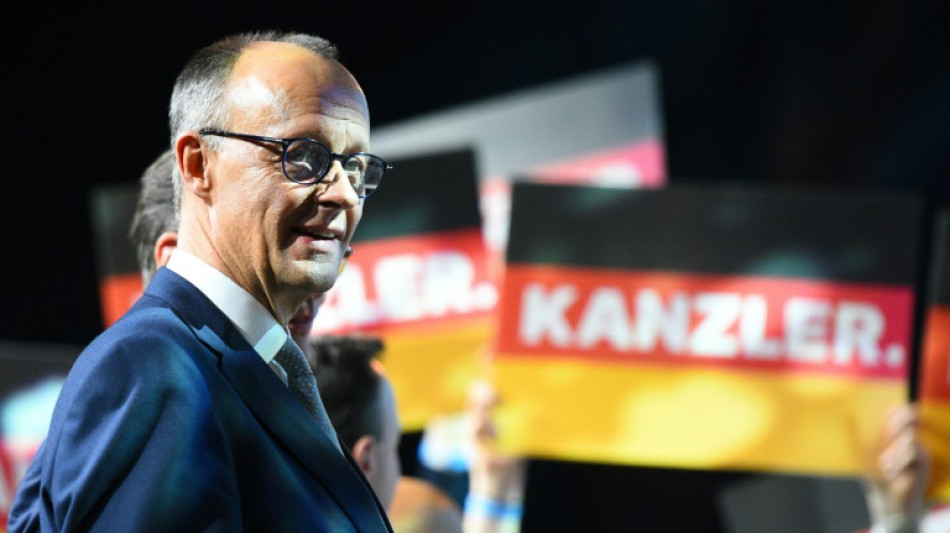
-
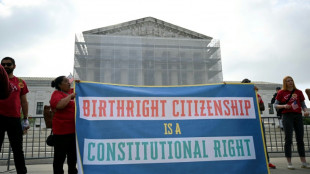 US Supreme Court weighs judicial checks on Trump with birthright case
US Supreme Court weighs judicial checks on Trump with birthright case
-
English trio among early contenders at PGA Championship

-
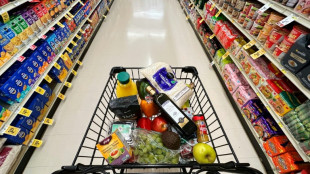 US retail sales little changed, signs of pullback after pre-tariff rush
US retail sales little changed, signs of pullback after pre-tariff rush
-
NATO on track to strike spending deal to please Trump
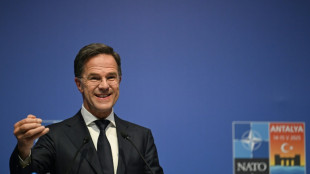
-
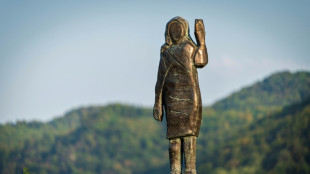 Slovenia probes disappearance of latest Melania Trump statue
Slovenia probes disappearance of latest Melania Trump statue
-
Amorim urges Man Utd to focus on Chelsea, not Europa League final
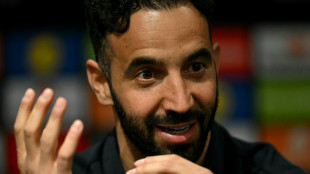
-
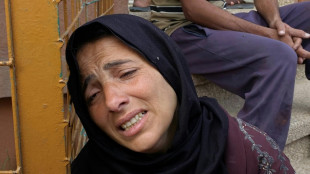 Gaza air strikes kill over 100 as manhunt unfolds in West Bank
Gaza air strikes kill over 100 as manhunt unfolds in West Bank
-
US Fed chair warns of potential for 'more persistent' supply shocks
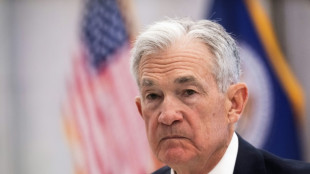
-
 Walmart warns of higher prices due to tariffs
Walmart warns of higher prices due to tariffs
-
Paul reaches Italian Open semis ahead of Sinner's clash with Ruud
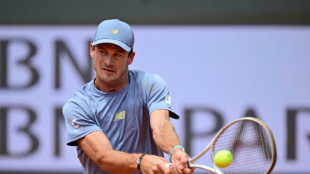
-
 New Cannes Festival policy bans actor accused of rape
New Cannes Festival policy bans actor accused of rape
-
Tottenham's Kulusevski out for the season as Son steps up recovery

-
 Leclerc absent as under par Ferrari face home race
Leclerc absent as under par Ferrari face home race
-
Rome businesses count their blessings with US pope

-
 World's top three launch early charge at PGA Championship
World's top three launch early charge at PGA Championship
-
Maresca 'happy' with pressure of Champions League challenge

-
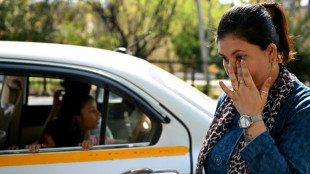 'Miracle': family reunites in Kashmir after fleeing conflict
'Miracle': family reunites in Kashmir after fleeing conflict
-
'Paradigm shift': Germany says to meet Trump's NATO spending target
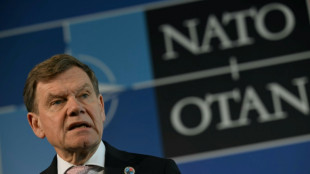
-
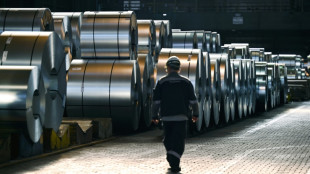 Struggling steel giant Thyssenkrupp's shares slump after profit hit
Struggling steel giant Thyssenkrupp's shares slump after profit hit
-
French lawmakers divided over PM child abuse hearing
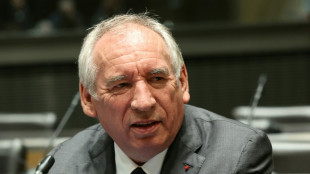
-
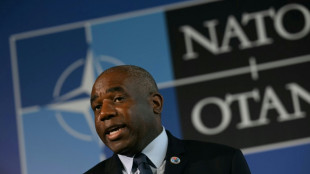 French chauffeur to face trial over alleged theft from UK minister
French chauffeur to face trial over alleged theft from UK minister
-
China's Alibaba posts annual revenue increase despite spending slump

-
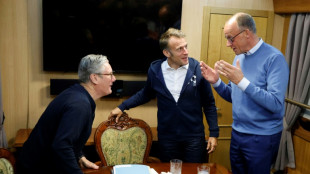 Tracking the disinfo on Macron's 'cocaine use' in Ukraine
Tracking the disinfo on Macron's 'cocaine use' in Ukraine
-
Fraser-Pryce admits family balance hard to maintain

-
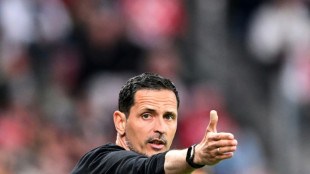 Frankfurt extend coach Toppmoeller's deal until 2028
Frankfurt extend coach Toppmoeller's deal until 2028
-
Germany's Commerzbank staff protest UniCredit takeover threat

-
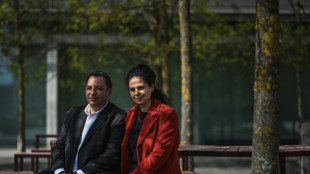 To achieve peace, Syria must punish all crimes: rights lawyer
To achieve peace, Syria must punish all crimes: rights lawyer
-
Gaza air strikes kill 94 as manhunt unfolds in West Bank
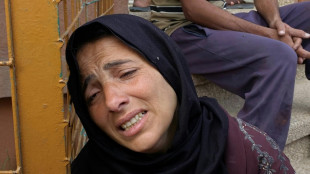
-
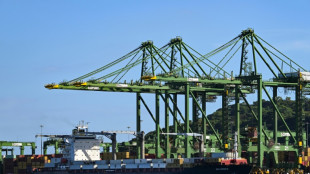 China warns Panama ports deal firms to 'proceed with caution'
China warns Panama ports deal firms to 'proceed with caution'
-
China's Alibaba says annual revenue up six percent year-on-year

-
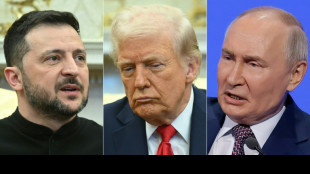 Russia, Ukraine trade insults ahead of Turkey peace talks
Russia, Ukraine trade insults ahead of Turkey peace talks
-
India and Pakistan trade accusations of nuclear arsenal mismanagement
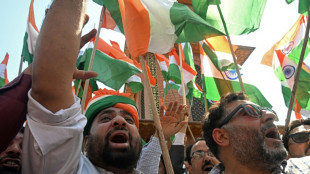
-
 EU accuses TikTok of violating digital rules over ads
EU accuses TikTok of violating digital rules over ads
-
Scotland's Ferguson ends injury nightmare with Bologna cup triumph

-
 In Italian debut, 2027 America's Cup to be held in Naples
In Italian debut, 2027 America's Cup to be held in Naples
-
Stokes determined to 'dominate' on England return

-
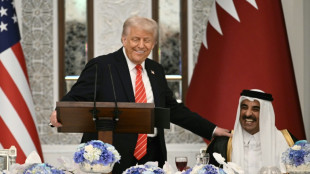 Trump says 'getting close' to deal to avoid Iran military action
Trump says 'getting close' to deal to avoid Iran military action
-
Vladimir Medinsky: Russia's history hawk leading talks with Kyiv
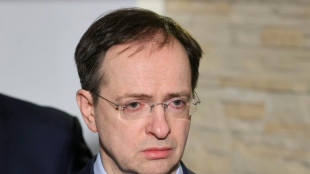
-
 Haaland eyes FA Cup to save face after Man City's 'horrific' season
Haaland eyes FA Cup to save face after Man City's 'horrific' season
-
India says Pakistan nuclear arsenal should be under UN surveillance
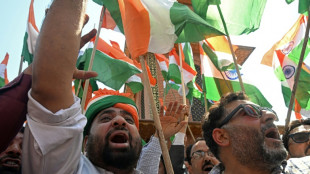
-
 Thai man arrested for smuggling baby orangutans
Thai man arrested for smuggling baby orangutans
-
UK economy grows above forecasts, but tariffs threaten progress

-
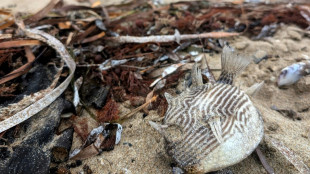 Toxic algae killing marine life off Australian coast
Toxic algae killing marine life off Australian coast
-
Oil prices tumble on hopes for Iran nuclear deal
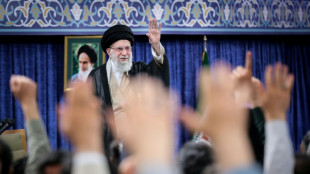
-
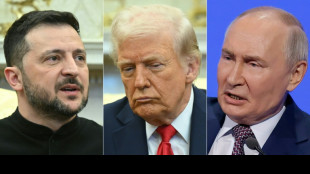 Russian delegation, without Putin, arrives in Istanbul for Ukraine talks
Russian delegation, without Putin, arrives in Istanbul for Ukraine talks
-
China first-quarter emissions fell despite rising power demand
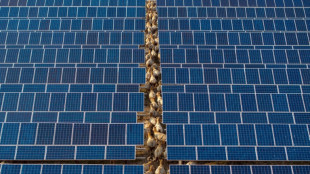
-
 Eurovision voting: when politics and kitsch converge
Eurovision voting: when politics and kitsch converge
-
Eurovision: the 16 acts in second semifinal

-
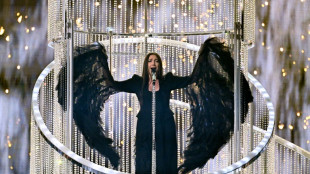 Israel in Eurovision spotlight at second semifinal
Israel in Eurovision spotlight at second semifinal
-
Can cash handouts replace aid? Kenya offers some answers


Germany on eve of elections under shadow of US-European rift
German politicians made a final scramble for votes Saturday on the eve of key elections in which conservatives hope to win despite the dramatic rise of the far right targeting a record score.
Sunday's vote comes at a time of upheaval for Europe and its biggest economy as US President Donald Trump has ended a united Western stance on the Ukraine conflict by reaching out to Russia.
Trump' threats of a trade war spell more trouble ahead for Germany, after its economy has shrunk for the past two years, and as it also faces bitter social polarisation on the flashpoint issues of immigration and security.
Sunday's vote is being held more than half a year ahead of schedule after centre-left Chancellor Olaf Scholz's three-way coalition collapsed in early November.
The conservative CDU-CSU alliance, led by Friedrich Merz, has long had a strong lead in opinion polls on around 30 percent, double that of Scholz's SPD.
The far-right Alternative for Germany (AfD) has been polling in second place on around 20 percent, boosted by anger over a spate of deadly knife attacks and car rammings blamed on migrants.
Just 10 days before the election, an Afghan man was arrested for ploughing a car through a street rally in Munich, killing a two-year-old child and her mother and wounding dozens.
Germany was again shocked by a stabbing that badly wounded a 30-year-old Spanish man at Berlin's Holocaust Memorial on Friday, though police have not yet spoken about the suspected motive.
- 'Two major problems' -
The AfD has had strong support from Trump's inner circle, with tech billionaire Elon Musk and Vice President JD Vance speaking out in support of the party.
With domestic tensions running high, two far-right demonstrations as well as a counter protest are expected to draw crowds in Berlin on Saturday.
In a final TV debate with Scholz on Wednesday, the CDU's Merz called on Germans to give him a strong mandate to "solve the country's two major problems: migration and the economy".
On Saturday afternoon, Merz will hold a final election rally in Munich alongside Markus Soeder, leader of the CSU, the CDU's sister party in the southern state of Bavaria.
Scholz, speaking at his final campaign rally in Dortmund on Friday, stressed his support for Ukraine's sovereignty and defended Germany's commitment to free speech in a pushback against recent comments Vance made in a blistering speech at the Munich Security Conference.
Scholz pledged that "we won't leave Ukraine alone and decide things over their heads and we will ensure that Ukraine is a country that can choose its own government".
- Coalition complications -
Stephanus Remmert, an SPD supporter at Friday's rally, said he was "still hopeful" about the election but regretted that some social, climate and economic issues had gotten short thrift during the campaign.
"I hope we don't slide too far to the right and that we can form a strong counterweight to America," he said.
In Berlin, 28-year-old Jonathan Winkler, a video editor, said he was planning to vote for the conservatives despite "not being a big fan of Merz".
If the polls are correct, Merz will win but then need the support of at least one and possibly two other parties to form a government.
The conservative leader has ruled out forming a ruling alliance with the AfD, which leaves his two most likely partners as the SPD and the Greens -- who are polling on around 15 and 13 percent respectively.
This would force them into a lengthy negotiating process to rebuild trust after a heated election campaign in which they clashed on migration and how to deal with the AfD, but also on fiscal policy questions.
"Forming a coalition is likely to be very difficult indeed," said Jacob Ross, a researcher at the German Council on Foreign Relations.
"Nevertheless, it would be in Germany's interest to have people in place in Berlin who are capable of acting as quickly as possible."
B.Baumann--VB
